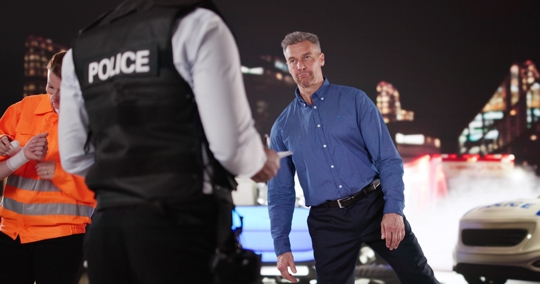Summertime in Texas brings vibrant celebrations, road trips, and, unfortunately, an increase in DWI-related incidents. While law enforcement sets up checkpoints to deter impaired driving and keep roads safe, these stops can also present legal challenges for drivers. Understanding your rights, Texas laws, and how to handle these encounters can help you avoid trouble. Here's everything you need to know to stay informed and prepared.
Understanding DWI Checkpoints in Texas
Definition and Purpose of DWI Checkpoints
DWI checkpoints are stops set up by law enforcement to identify impaired drivers and reduce alcohol-related accidents. Although Texas does not routinely allow these checkpoints statewide, local jurisdictions may sometimes implement them under specific circumstances. These operations are usually placed near high-risk areas, such as bars, clubs, or during holidays, to maximize their effectiveness. While they aim to maintain public safety, checkpoints must follow strict legal guidelines to remain constitutional. Law enforcement agencies must provide notice through signage and publicity, ensuring they focus on prevention rather than punishment.
Legal Rights at DWI Checkpoints
Drivers in Texas have important rights when approaching DWI checkpoints. Officers cannot search your vehicle without probable cause or your consent, and you don’t have to answer incriminating questions like whether you’ve been drinking. However, under Texas’s implied consent laws, refusing a breathalyzer test can result in license suspension. Remaining calm and respectful while providing necessary documents, like your license and insurance, can make the encounter smoother. Politely declining to answer certain questions or perform field sobriety tests, as allowed by law, can also protect your rights without escalating the situation.
Texas-Specific Legal Framework
Laws Governing DWI in Texas
Texas strictly enforces DWI laws, with a BAC limit of 0.08% for adults, 0.04% for commercial drivers, and zero tolerance for those under 21. Violating these limits can lead to serious legal consequences, including fines, license suspension, and imprisonment. Repeat offenders face even steeper penalties, like extended jail time, higher fines, or ignition interlock requirements. These regulations highlight the critical importance of not driving after drinking and using alternative transportation whenever alcohol is involved to avoid severe legal and personal repercussions.
Recent Legislative Changes
Texas laws regarding DWI continue to evolve with a focus on public safety and fairness. While DWI checkpoints are generally restricted, new legislation strengthens penalties for repeat offenders and those causing severe harm. Courts continue to refine guidelines for checkpoint procedures, requiring fairness in operation and transparency for drivers. These updates ensure that enforcement prioritizes both community safety and individual rights. Staying informed on these changes is crucial for drivers to understand their legal protections and responsibilities when encountering DWI enforcement measures.
Tips for Avoiding Legal Complications
Pre-Checkpoint Preparation
Being prepared can help you avoid complications at DWI checkpoints. Plan your outings in advance, use GPS tools to avoid potential checkpoint areas, and always arrange for a designated driver or rideshare service if you plan to drink. Understanding your rights can also empower you to handle stops confidently if faced with one. These proactive steps minimize legal risks and promote responsible road behavior, ensuring safety for yourself and others.
Handling Checkpoint Encounters
Should you encounter a checkpoint, stay calm and composed. Slow your vehicle, fasten your seatbelt, and lower distractions such as loud music. Present your license, registration, and insurance promptly when asked, which displays cooperation. While following officers’ instructions respectfully is important, protect your rights by refusing unauthorized searches or answering questions that could incriminate you. Staying respectful and prepared helps ensure the process goes smoothly while safeguarding your legal protections.
Seeking Legal Assistance
When to Contact an Attorney
If you’re stopped at a DWI checkpoint or charged after an encounter, seeking legal guidance promptly is crucial. An experienced attorney can clarify your options, challenge improper procedures, or build a strong defense on your behalf. Facing these charges alone can be overwhelming, but a knowledgeable lawyer can protect your rights and guide you through the legal process. Acting early ensures you have the best chance to resolve your case positively and avoid potential missteps.
Legal Defense Strategies
Common defense strategies in DWI cases include disputing improper checkpoint execution, inaccurate test results, or violations of constitutional rights. A skilled attorney will analyze every aspect of your case, from the legality of the checkpoint to the accuracy of breathalyzer tests, to identify procedural errors or rights violations. Knowing these options and partnering with a qualified attorney can make all the difference when facing these charges. Understanding the legal process and having strong advocacy ensures you’re well-prepared to tackle the challenges ahead.
Angleton DWI & DUI Lawyers
Navigating the complexities of Texas DWI laws and checkpoint encounters doesn’t have to be overwhelming. When you need trusted legal guidance, the Jeff Gilbert Law Office in Angleton, TX is here to help. With extensive experience in family law and criminal defense, our compassionate team is dedicated to standing strong for our clients in their most challenging times. Whether facing a DWI charge or seeking legal advice on another matter, we’re ready to provide personalized support tailored to your needs. Call (979) 304-2160 or reach out online to schedule a confidential consultation today. Your rights matter, and we’re here to protect them.

